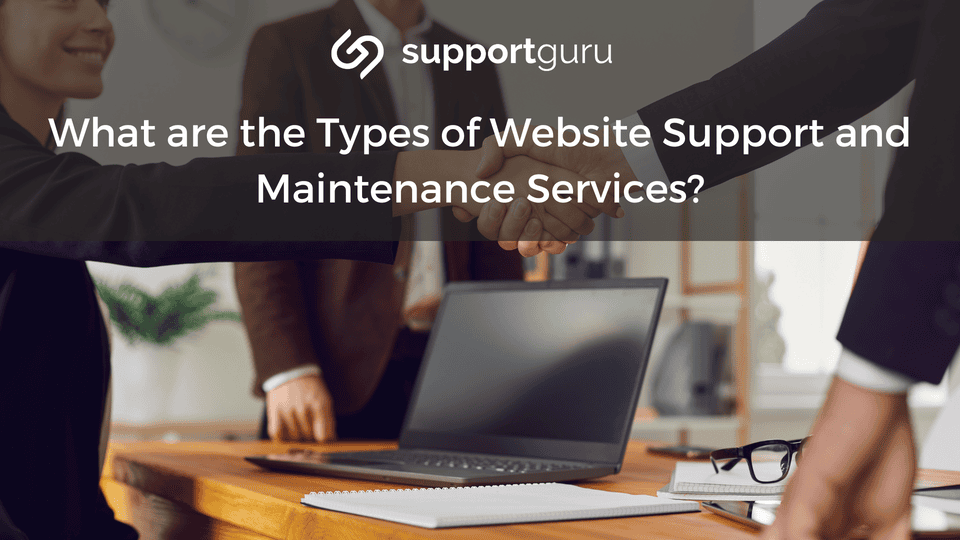Your website is often the first impression your business makes. To ensure a positive and lasting impact, regular website support and maintenance are crucial.
Navigating the different types of services available can be overwhelming.
Being the cornerstone of your presence, it must offer availability and customer support 24/7. For an optimal functional, secure, and positive user experience, regular website support and maintenance are no longer optional; they're essential.
Choosing the right type of website support and maintenance service is necessary to make an informed decision.
1. Security Updates and Patching
Your website demands consistent security patching to stay protected from evolving cyber threats.
Addressing known vulnerabilities and ensuring compatibility with the latest security patches released by software developers.
According to a 2023 Imperva report, at least one successful cyberattack compromised 84.7% of organizations.
Critical Service Typically Offers
Regularly scanning for malware using reputable security solutions, conducting penetration testing to identify potential security weaknesses, and establishing secure login procedures with strong password requirements and multi-factor authentication protocols.
2. Performance Optimization
Website speed significantly impacts the user experience and search engine ranking. Performance optimization services aim to improve website speed and responsiveness through various strategies, including:
Make use of the impage compression technique to reduce file sizes without compromising image quality, ensuring faster loading times.
Streamlining website code to minimize performance bottlenecks and enhance website responsiveness.
Storing frequently accessed data, such as static content and scripts, to improve the responsiveness of the website to returning visitors.
3. Content Management and Updates
Keeping your website's content fresh and engaging is vital for attracting and retaining visitors.
Content management services typically include adding new blog posts, product descriptions, or other relevant content to enhance user engagement and search engine optimization.
Ensuring website content is accurate, informative, grammatically correct, and adheres to brand voice and style guidelines.
Effectively handling user inquiries and submissions through website forms, ensuring smooth user interactions and efficient lead capture processes.
4. Backup and Disaster Recovery
Unforeseen events like server crashes or cyberattacks can disrupt your website and potentially lead to data loss.
Backup and disaster recovery services provide peace of mind by creating secure copies of your website content, settings, and databases in a secure offsite location, ensuring data availability in case of emergencies.
Establish a clear and efficient protocol for restoring your website in case of disruptions, minimizing downtime and data loss.
Regularly verify the integrity and accessibility of your backups to ensure a smooth and successful recovery process in the event of an incident.
5. 24/7 Monitoring and Support
Website issues can arise at any time, and prompt resolution is crucial to minimize disruption and maintain a positive user experience. 24/7 monitoring and support services help in the following ways:
24/7 Monitoring and Support Services
Use specialized tools or identify potential issues like website downtime, performance bottlenecks, or security threats before they impact the user experience.
Offer prompt assistance from experienced professionals to resolve website issues, answer your questions, and address any technical concerns.
Proactively maintain your website's availability to visitors, minimizing downtime and ensuring consistent website accessibility.
It is important to note that not all website support and maintenance providers offer 24/7 monitoring and support.
Be sure to inquire about the specific services included in any plan you are considering.
